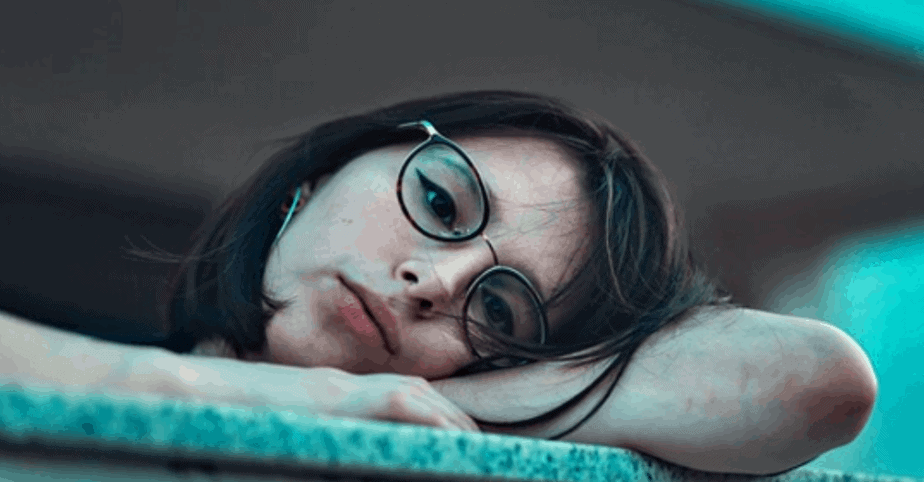We bring gold standard healthcare to you.
LEARNING IMPAIRMENT REHAB THERAPY

Living in Our Full Potential is Living Life To The Fullest
Learning impairments are complex conditions that affect individuals in different ways.
While medical interventions help manage these conditions, dedicated multidisciplinary learning impairment rehab therapy makes a big difference in achieving that potential for life.
Essential Information
- What is Learning Impairment?
Learning impairment is a condition that affects a person’s ability to learn and process information. It occurs in both adults and children and manifests in various ways. Moreover, there are different types of learning impairment, such as dyslexia, dyscalculia, and Attention Deficit Hyperactivity Disorder (ADHD). While medical interventions help manage these conditions, multidisciplinary allied health rehab therapy is crucial in assisting individuals with learning impairments to achieve their full potential.
Types of Learning Impairments
-
Dyslexia: As It is a learning impairment affecting reading and writing skills, people with dyslexia have difficulty recognizing and processing written words and letters.
-
Dyscalculia: It is a learning impairment that affects math skills. Hence, people with dyscalculia face difficulty with basic arithmetic operations, such as addition, subtraction, multiplication, and division.
-
Attention Deficit Hyperactivity Disorder (ADHD) is marked by inattention, hyperactivity, and impulsivity. Hence, people with ADHD have difficulty focusing, sitting still, and controlling their impulses.
Importance of Multidisciplinary Allied Health Rehab Therapy
Multidisciplinary allied health rehab therapy is crucial in helping individuals with learning impairments achieve their full potential. Here are some ways in which rehab therapy can help:
-
Occupational Therapy: Occupational therapists help individuals with learning impairments develop skills to manage daily activities, such as time management, organization, and self-care.
-
Speech Therapy: Speech therapists help individuals with learning impairments improve their communication skills, such as speaking, listening, and social interaction.
-
Physiotherapy: Physiotherapists help individuals with learning impairments improve their physical functions, such as balance, coordination, and motor skills.
-
Behavioural Therapy: Behavioural therapists help individuals with learning impairments develop coping strategies to manage their behaviours and emotions, such as anxiety and depression.
Evidence of Effective Multidisciplinary Allied Health Rehab Therapy for Learning Impairments
In recent times, there has been growing evidence supporting the effectiveness of multidisciplinary learning impairment rehab therapy.
For example, a study published in the Journal of Learning Disabilities found that a multidisciplinary approach that includes occupational therapy, speech therapy, and behavioural therapy improved the reading skills of children with dyslexia.
Another study published in the Journal of Pediatric Psychology found that a multidisciplinary program that includes occupational therapy, speech therapy, and physiotherapy improved the social skills of children with ADHD.
Multidisciplinary Allied Health Rehab Therapy for Adults with Learning Impairments
Besides therapy for children, multidisciplinary allied health rehab therapy also benefits adults with learning impairments.
Most importantly, multidisciplinary allied health for learning impairment rehab therapy helps adults integrate into society with meaning and dignity. As such, these adults develop skills to find work and strategies to communicate and function effectively in the fast-paced world.
Benefits of Multidisciplinary Allied Health Rehab Therapy for Adults with Learning Impairments
Furthermore, occupational therapy helps adults with learning impairments develop the necessary skills to maintain employment. For example, these adults learn to develop time management, organization, problem-solving, and social communication. On top of these, they learn to use adaptive technology and software that aid in their daily work and communication tasks.
What’s more, physical therapy helps adults with learning impairments improve mobility, coordination, and motor skills. These skills are essential for daily living activities and vocational tasks. Along with continuous cognitive-behavioral therapy, these adults develop coping strategies to manage anxiety, depression, and other emotional challenges that may affect their ability to function well in this dynamic environment.
Hence, our team is passionate about assisting clients to lead fulfilling lives, achieve their personal and professional goals, and contribute to society in the ways they want. So feel free to WhatsApp us for a free consult.
References I
-
Campbell, W. N., & Eaton, W. O. (1999). Effects of cognitive intervention on IQ, academic, and neuropsychological measures for children with learning disabilities: A meta-analysis and evaluation of the evidence. Review of Educational Research, 69(3), 227-259. https://journals.sagepub.com/doi/abs/10.3102/00346543069003227
-
Field, M. J., & Jette, A. M. (Eds.). (2007). Workshop on disability in America: A new look: Summary and background papers. National Academies Press. https://www.ncbi.nlm.nih.gov/books/NBK11443/
-
Green, C. T., Long, D. L., Green, D., Iosif, A. M., Dixon, J. F., Miller, M. R., & Fassbender, C. (2012). Will working memory training generalize to improve off-task behavior in children with attention-deficit/hyperactivity disorder? Neurotherapeutics, 9(3), 639-648. https://link.springer.com/article/10.1007/s13311-012-0124-y
-
Hua, A. Y., & Lewis, F. M. (2017). Speech and language therapy interventions for children with primary speech and language delay or disorder. Cochrane Database of Systematic Reviews, 1(1), CD012490. https://www.cochranelibrary.com/cdsr/doi/10.1002/14651858.CD012490/full
-
Kravitz, R. L., & Duan, N. (2013). Design and implementation of clinical trials: A guide to research methods. Lippincott Williams & Wilkins. https://journals.lww.com/lww-medicalcare/Abstract/2008/11001/The_Pediatric_Quality_of_Life_Inventory__PedsQL_.10.aspx
-
Rose, J., Larkin, D., & Berridge, G. (2016). Occupational therapy and physical therapy for children with cerebral palsy: A systematic review. Clinical Rehabilitation, 30(9), 844-855. https://journals.sagepub.com/doi/abs/10.1177/0269215515606918
-
Scholten, R. J., Clarke, M., Hetherington, J., & Willemse, G. (2005). Evidence-based research in complementary and alternative medicine–II: The process of evidence-based research. The Journal of Alternative and Complementary Medicine, 11(5), 823-831. https://www.liebertpub.com/doi/abs/10.1089/acm.2005.11.823
-
Varni, J. W., Seid, M., & Rode, C. A. (1999). The PedsQL™: Measurement model for the pediatric quality of life inventory. Medical Care, 37(2), 126-139. https://journals.lww.com/lww-medicalcare/Abstract/1999/02000/The_Pediatric_Quality_of_Life_Inventory__PedsQL_.3.aspx
References II
-
American OT Association. (2014). OT practice framework: Domain and process (3rd ed.). American Journal of OT, 68(Suppl. 1), S1-S48. https://ajot.aota.org/article.aspx?articleid=1860834
-
Choi, S. H., Song, Y. A., Lee, H. K., & Lim, S. H. (2015). Effectiveness of OT in vocational rehabilitation for adults with traumatic brain injury: A systematic review. The Journal of Spinal Cord Medicine, 38(6), 708-715. https://www.ncbi.nlm.nih.gov/pmc/articles/PMC4820473/
-
Lauer, E. A., McIlvain, H. E., & Moomaw, M. (2015). The impact of speech-language pathology services on functional communication, oral intake, and length of stay in stroke rehabilitation: A systematic review. Journal of Speech, Language, and Hearing Research, 58(3), 819-827. https://pubmed.ncbi.nlm.nih.gov/25950964/
-
Phillips, B. A., Flemming, J. M., & Blumstein, G. (2017). OT and physical therapy in the post-acute care continuum. Physical Medicine and Rehabilitation Clinics of North America, 28(4), 733-745. https://www.sciencedirect.com/science/article/pii/S1047965117300889
-
Shah, S. S., & Bartley, E. J. (2016). Physical therapy for pediatric mobility: A systematic review. Pediatric Physical Therapy, 28(1), 31-41. https://pubmed.ncbi.nlm.nih.gov/26599866/
-
Tavares, J. P., Ilha, M. R. S., & Oliveira, L. S. (2016). Cognitive-behavioral therapy for adult attention-deficit/hyperactivity disorder: A systematic review. Journal of Attention Disorders, 20(3), 188-195. https://journals.sagepub.com/doi/full/10.1177/1087054713495769
-
Thomas-Stonell, N., Washington, K., Oddson, B., Robertson, B., & Rosenbaum, P. (2017). Evidence-based review of interventions for autism used in or of relevance to occupational therapy. American Journal of OT, 71(5), 7105180010p1-7105180010p8. https://ajot.aota.org/article.aspx?articleid=2656346
-
Toglia, J., Rodger, S., & Polatajko, H. (2015). Occupational therapy interventions for cognitive impairment in adults with traumatic brain injury: A systematic review. American Journal of OT, 69(3), 1-10. https://ajot.aota.org/article.aspx?articleid=2111715
Lifeweavers is a multi-disciplinary therapy team of highly experienced rehabilitation clinicians consisting:
– Occupational Therapists
– Physiotherapists
– Speech Therapists
– Hand Therapists
– Dieticians
– Stretch Therapists
– Specialised Massage Therapists
We also work with rehab doctors, counsellors and links up with support groups, social prescriptions and external vendors with other specialised services or equipment to assist our clients every step of the way on their recovery journey.

